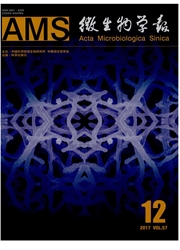

 中文摘要:
中文摘要:
微生物获得特定类型的抗性突变,不仅反映了其核糖体或RNA多聚酶上相关靶位点结构的改变,也对突变菌株次级代谢产物(抗生素等)的生物合成能力产生深刻影响,因此筛选抗性突变株可作为微生物推理选育的途径之一。“核糖体工程”是利用微生物的各类抗性突变为筛选标记,高效获得次生代谢产物合成能力提高的突变株的推理育种新方法。本文综述了微生物“核糖体工程”的概念、各类突变的作用机理,并着重介绍组合抗性突变在提高出发菌株次级代谢产物产量方面的应用。
 英文摘要:
英文摘要:
Drug-resistance mutation of microorganisms reflects structure and function changes of the ribosome and RNA polymerase. These changes can have significant effects on secondary metabolism in the mutant strain. Thus, ribosome engineering is an effective approach to develop mutant strains that overproduce secondary metabolites (i. e. antibiotics) by screening various drug-resistance mutations. We introduced the concept and the mechanisms of the ribosome engineering. The efficacy of the strain improvement was highlighted in Streptomyces spp. by introducing combinatory drug-resistances. The applications of the method in the strain-breeding of various bacteria were also summarized.
 同期刊论文项目
同期刊论文项目
 同项目期刊论文
同项目期刊论文
 期刊信息
期刊信息
